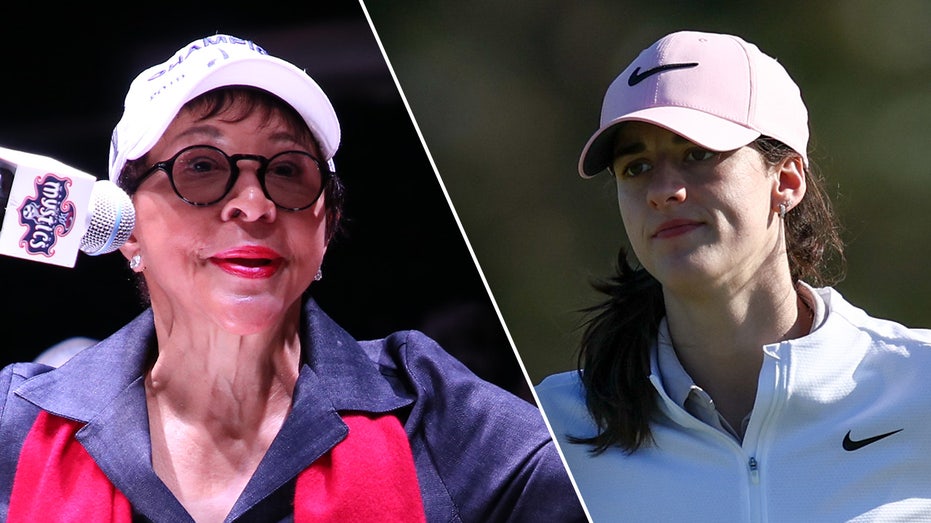WNBA owner questions why Caitlin Clark was named Time Athlete of the Year, suggests it will cause racism
Washington Mystics owner Sheila Johnson spoke out against Time magazine for naming Caitlin Clark "Athlete of the Year" in an interview with CNN Sport on Friday, suggesting that the publication should have given the award to the entire WNBA.
Johnson even suggested the decision to give Clark the honor would incite feelings of "racism" within the league.
"Why couldn’t they have put the WNBA on that cover and say, ‘The WNBA is the league of the year,’ because of all the talent that we have," Johnson said. "When you single out one player, it creates hard feelings, so now you’re starting to hear stories of racism within the WNBA, and I don’t want to hear that."
Johnson went so far as to claim that Clark’s attention and the minting of the term "the Caitlin Clark effect," which has been associated with the attention she has brought to the league, is because of race.
"It’s the way media plays out race," Johnson said. "I feel really bad, because I’ve seen so many players of color that are equally as talented, and they never got the recognition they should have."
CLICK HERE FOR MORE SPORTS COVERAGE ON FOXNEWS.COM
The owner also griped about the fact that Clark got a $28 million endorsement deal with Nike in April, which was the richest sponsorship contract for a women's basketball player.
"They would like to get the same kind of recognition. It all started with the whole Nike sponsorship that Caitlin got," Johnson said. "There are other players saying, ‘What about us?’"
Johnson is the Vice Chairman of Monumental Sports & Entertainment, which also owns the NBA's Washington Wizards and NHL's Washington Capitals. Her Mystics directly capitalized on Clark's popularity to net historic ticket sales at the end of the regular season this year.
The Mystics' season finale against Clark's Indiana Fever was moved from the Mystics' home venue, the Entertainment and Sports Arena with just 4,200 seats, to the Wizards' venue, the Capital One Arena, which has a maximum capacity of 20,356 for basketball games. As a result, the Sept. 19 game between the Fever and Mystics was the most-attended WNBA regular season game in history, with 20,711 fans in attendance.
The Las Vegas Aces pulled off a similar move when they hosted the Fever at the larger T-Mobile Arena for a July 2 game instead of playing in the relatively smaller Michelob ULTRA Arena. For that game, 20,366 fans showed up, representing the highest regular-season single-game attendance since 1999.
Still, Johnson opted to publicly denigrate and undermine the attention that Clark gets in the CNN interview. Johnson also suggested that the WNBA's increase in popularity was also because of other WNBA rookies from the 2024 season, including Chicago Sky star Angel Reese.
"It has taken the WNBA almost 28 to get to the point where we are now, and this year something clicked with the WNBA, and it's because of the draft of the players that came in, it's not just Caitlin Clark, it's Reese," Johnson said. "We have so much talent out there that's so unrecognized, and I don't think we can just pin it on one player."
Johnson's Mystics did actually play a game against Reese's Sky at Capital One Arena this year as well, on June 6. However, that game only fetched 10,000 attendees – fewer than half the number at the game that featured Clark at the end of the season.
Johnson, the first Black woman to have a stake in three professional sports teams, is just one of many figures in sports and media to cite race for Clark's popularity in a negative light.
WNBA MVP A'ja Wilson has said Clark being White was a "huge thing" when it came to the rookie's popularity
In May, "The View" host Sunny Hostins said during an episode of that show that Clark's popularity was due, in part, to "white privilege."
Journalist Jemele Hill insisted it was "naive" to say that Clark's race as a White person, and sexuality as a straight woman, did not play into her popularity in the WNBA, where the vast majority of players are Black and many are lesbian, during an interview with the Los Angeles Times in May. Hill also insisted that Clark's popularity with those attributes is "problematic."
Former FS1 and ESPN host Skip Bayless, who was one of Clark's harshest critics leading up the start of her WNBA career, admitted that he pretended not to be impressed by her skill out of "guilt," and not wanting to stir racial division. He went so far as to suggest that Clark had become a "right-wing symbol" due to the fact that she is a White player excelling at the game of basketball.
Clark has been forced to answer questions about her race and alleged racism by her fans multiple times since coming into WNBA this year, including in the Time magazine profile that Johnson criticized.
"I want to say I’ve earned every single thing, but as a White person, there is privilege," Clark told Time. "A lot of those players in the league that have been really good have been Black players. This league has kind of been built on them."
Johnson says she doesn't believe that Clark had to make the statement, but that she "applauds" the phenom for doing so.
Follow Fox News Digital’s sports coverage on X, and subscribe to the Fox News Sports Huddle newsletter.

